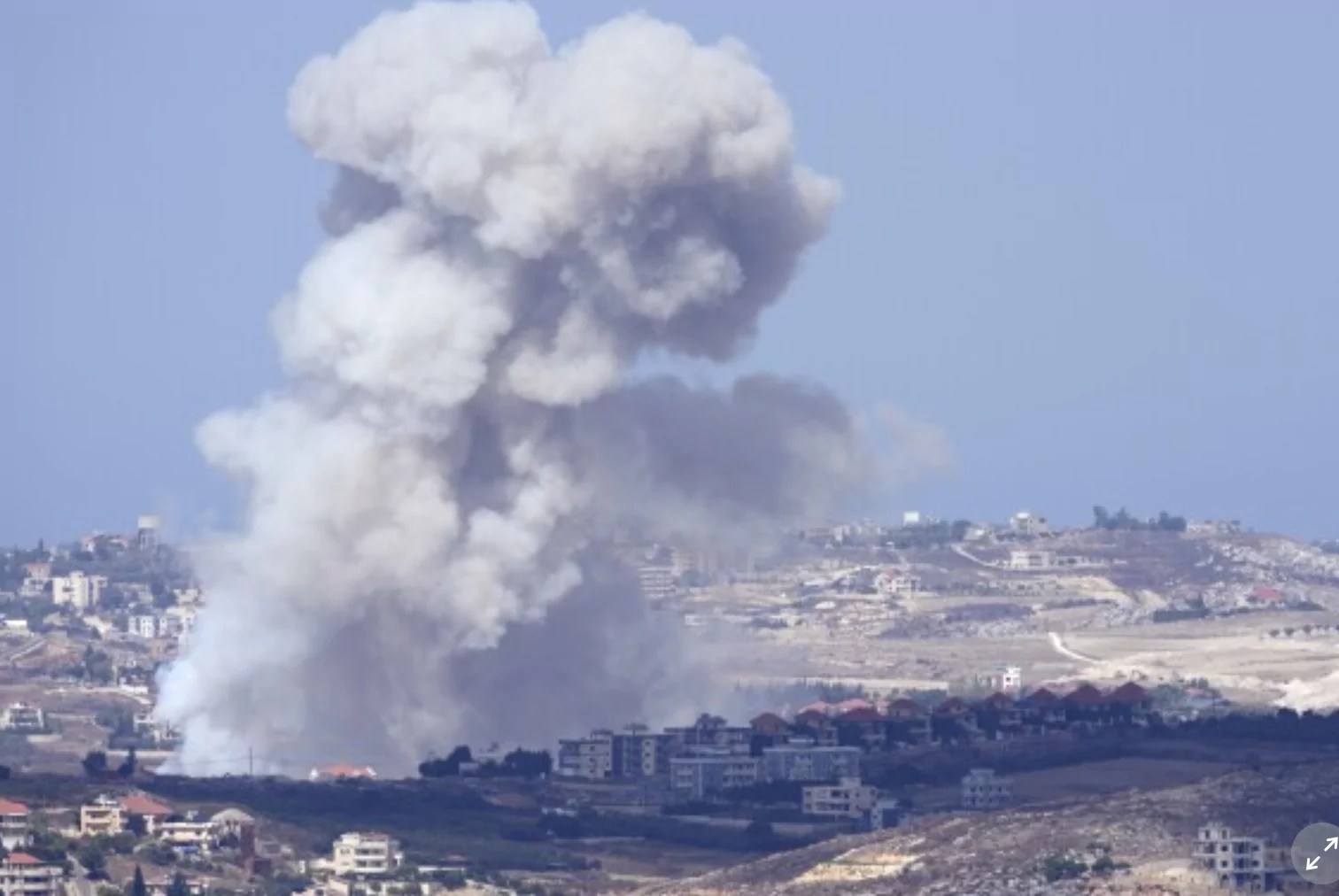


The leaders of several Western countries, including President Joe Biden, on Wednesday called for a three-week ceasefire between Israel and Hezbollah to prevent their conflict from devolving further.
Israel and Hezbollah have been in a limited conflict for almost a year, though it has significantly escalated over the last couple of weeks, with signs pointing toward further escalation. A senior Israeli military leader indicated on Wednesday that Israeli forces could soon invade southern Lebanon to destroy Hezbollah’s arsenal.
“The situation between Lebanon and Israel since October 8th, 2023 is intolerable and presents an unacceptable risk of a broader regional escalation. This is in nobody’s interest, neither of the people of Israel nor of the people of Lebanon,” the leaders of the United States, Australia, Canada, the European Union, France, Germany, Italy, Japan, Saudi Arabia, the United Arab Emirates, the United Kingdom, and Qatar said in a joint statement.
The leaders said the 21-day ceasefire would be used for diplomacy so that the parties could create a lasting solution.
“We were looking for a period of time that would be a sustained space that was long enough to allow for negotiations on a realistic basis, to be able to reach a complicated agreement down, down during that period of time,” a senior Biden administration official told reporters on the condition of anonymity.
The push for a ceasefire between Israel and Hezbollah comes as both sides have ramped up their attacks on one another.
“The exchange of fire since October 7th, and in particular over the past two weeks, threatens a much broader conflict, and harm to civilians,” President Joe Biden and French President Emmanuel Macron said in a joint statement. “We therefore have worked together in recent days on a joint call for a temporary ceasefire to give diplomacy a chance to succeed and avoid further escalations across the border.”

Hezbollah began firing rockets and missiles from southern Lebanon into northern Israel back on Oct. 8, in solidarity with Hamas, the Gaza-based terrorist group that a day earlier had carried out the deadliest terrorist attack in Israel’s history. The Hamas attack on Oct. 7, 2023, left roughly 1,200 people dead, while they kidnapped roughly 250 others.
Israel, fearing that Hezbollah could launch a similar cross-border raid, evacuated more than 50,000 people who live near the border. They remain displaced from their homes as the northern part of Israel has become uninhabited. Lebanon has evacuated people from near the border, while tens of thousands have evacuated this week following the insistence of Israeli officials.
Israeli leaders have said creating the conditions to allow these civilians to return to their homes is the objective of their increased attacks against Hezbollah.
Israel and Hezbollah last went to war in 2006. The war began after a Hezbollah cross-border raid and ended with United Nations Security Resolution 1701. The resolution called on Israeli forces to withdraw from southern Lebanon and for Hezbollah to remove its weapons from the area of the country south of the Litani River, which is about 18 miles from Lebanon’s border with Israel.
Hezbollah has not lived up to the resolution, and they have fired roughly 8,000 projectiles at northern Israel since Oct. 8. On Wednesday, Hezbollah claimed credit for launching a ballistic missile at Tel Aviv, a city in Israel that has not usually come under attack by Hezbollah or other terrorist groups near Israel’s borders.
“We call on all parties, including the Governments of Israel and Lebanon, to endorse the temporary ceasefire immediately consistent with UNSCR 1701 during this period, and to give a real chance to a diplomatic settlement,” the group of Western leaders said, referencing the security council resolution.
CLICK HERE TO READ MORE FROM THE WASHINGTON EXAMINER
Despite several previous statements from world leaders, Israel and Hamas have not been able to agree to a ceasefire deal for several months despite intense negotiations between them and the mediators who have sought to broker the agreement — the United States, Egypt, and Qatar.
Hezbollah has said they wouldn’t stop their attacks on Israel until Israel and Hamas agreed to a ceasefire deal, though U.S. officials have said Hamas has been the primary reason a deal has not been agreed to yet.
